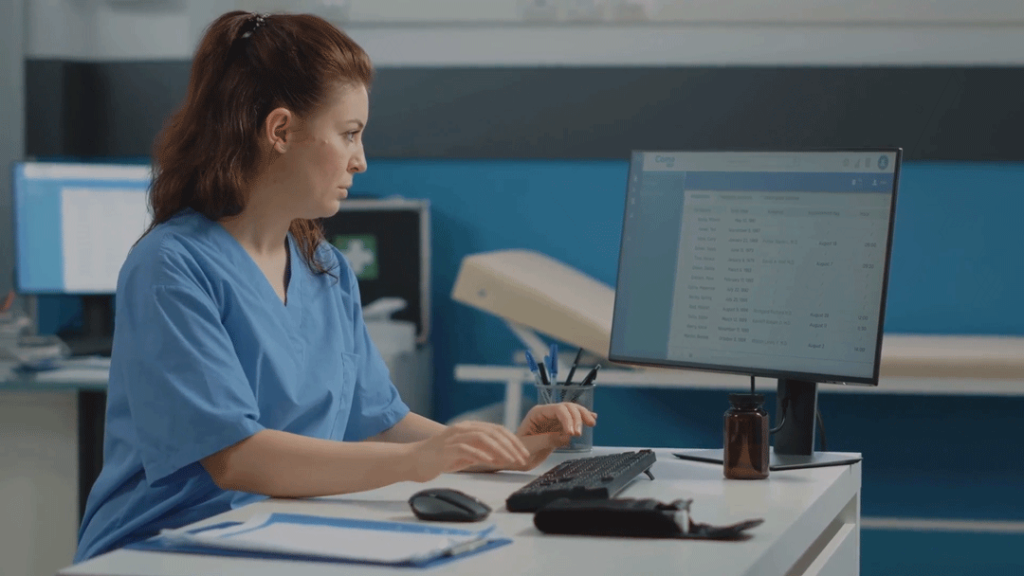The practice of nurse triage has been around for a while, but what does it mean for patient engagement in our current time? Thanks to advancements in telehealth, nurse triage in modern healthcare means a digital system of RNs who can help your patients whenever they have a need or question about their health.
Let’s explore how nurse triage can benefit any medical practice, as well as your best option for this service.
Symptom Severity and Expedited Care
One of the primary reasons to use a nurse triage service is its ability to assess the severity of a patient’s symptoms before they ever set foot in a doctor’s office. This is especially valuable for those who may live far from their providers, clinics, or hospitals.
A triage nurse can evaluate a patient’s reported symptoms and their severity to understand if the patient really does need to be seen by a medical professional, and how soon. This not only directs that patient to the right level of care, but also avoids delaying it.
If a nurse determines that a patient doesn’t need to be seen by a provider, they can offer guidance on how to manage symptoms at home. This leads to greater patient satisfaction and trust, especially when they get immediate answers to their questions.
Digital Tools
Nurse triage in modern healthcare benefits from a wide variety of digital tools. Nurses can now interact with patients through telehealth conferencing, as well as share patient data directly with provider EMRs to avoid duplicate or insufficient information.
Nurse triage software can be used to document patient calls so that doctors know exactly what was discussed and what the patient may be facing. This reduces liability for individual nurses and practices alike.
Nurses can also use digital tools to make sure they’re applying the correct triage protocols, to share HIPAA-compliant texts directly with their providers, and to improve how they present patient symptoms to doctors so that they can offer faster, accurate diagnoses.
In short, nurse triage helps patients access the appropriate care in the appropriate windows of time.
Nurse Triage On Call: A Service That Expands on These Benefits
Our Nurse Triage On Call (NTOC) solution takes the advantages above and expands upon them to offer the best nurse triage in modern healthcare.
Our medical call center of registered nurses will become an extension of your practice, available to take calls for your patients any time of day. We can use customized standing orders from your team, and integrate our documentation directly with your established workflows.
When calls are answered by NTOC, patients are evaluated using the latest Schmitt-Thompson triage protocols — long considered the industry’s gold standard — for understanding symptom severity and generating dispositions for care.
Our nurses utilize our proprietary triage software, myTriageChecklist (MTC), to record all patient interactions and share them directly with your providers. This information is housed on a secure, private cloud, which meets all requirements for HIPAA compliance. MTC also offers analytics to identify patient needs within specific age ranges and geographic regions, and to anticipate future call volumes so that the appropriate number of nurses are scheduled.
By helping patients understand their symptoms, they learn when those symptoms indicate the need to go to an urgent care or ER, or when they can wait to be evaluated by a primary care doctor. This reduces unnecessary ER visits, saves money for patients and providers, and frees up valuable medical resources for those who truly need them.
Experience the Best Nurse Triage in Modern Healthcare
Let our team of outsourced triage nurses help you substantially improve your patient engagement and practice operations. Contact us today to talk about a customized program!
About TriageLogic
TriageLogic is a URAC-accredited, physician-led provider of top-quality nurse telehealth technology, remote patient monitoring, and medical call center solutions. Founded in 2007, the TriageLogic Group now serves more than 22,000 physicians and covers over 42 million lives nationwide.





